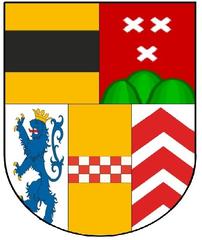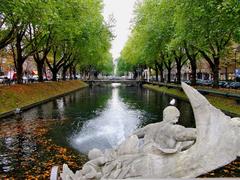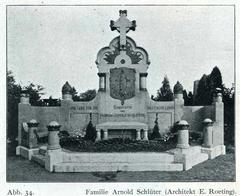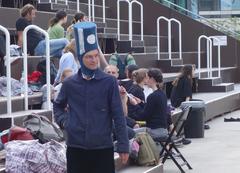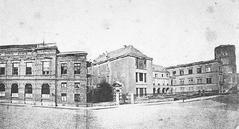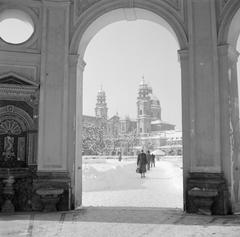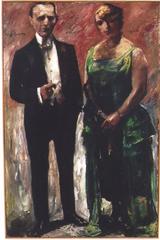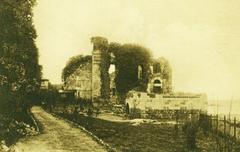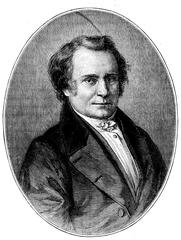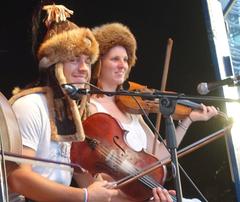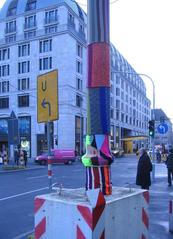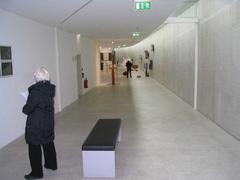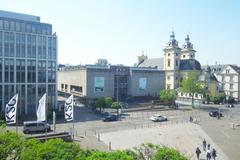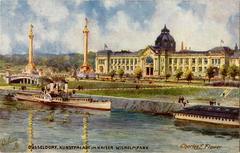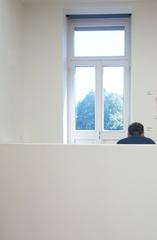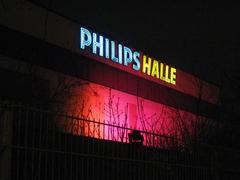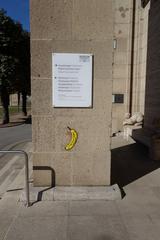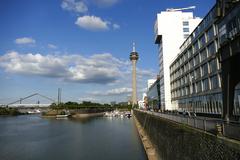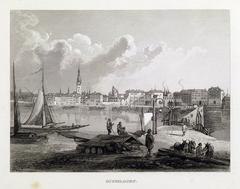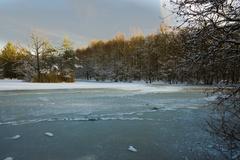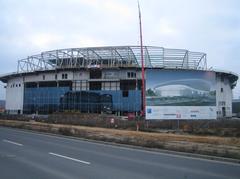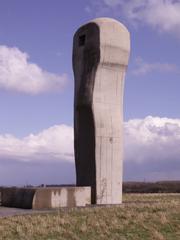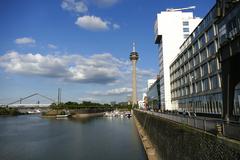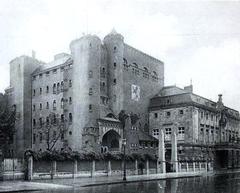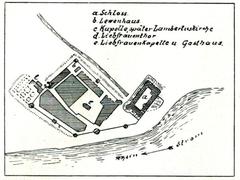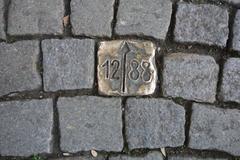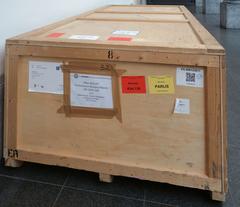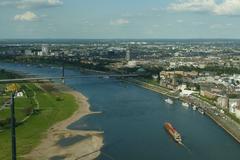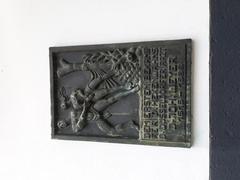Visiting Aquazoo Löbbecke Museum Düsseldorf: History, Tickets, Tips, and More
Date: 17/07/2024
Introduction
Discover the wonders of the Aquazoo Löbbecke Museum in Düsseldorf, a unique attraction that seamlessly combines marine biology, zoology, and environmental education. Whether you’re a history buff, a nature enthusiast, or planning a family outing, this museum offers something for everyone. The museum’s origins date back to the 19th century when Theodor Löbbecke, a pharmacist and naturalist, began amassing an extensive collection of marine life. This collection eventually led to the establishment of the Löbbecke Museum in 1904, which later merged with the Aquazoo in 1987 to form the current institution. Located in the scenic Nordpark, the museum features a combination of aquariums, terrariums, and exhibition spaces that allow visitors to explore the diversity of life in both aquatic and terrestrial environments. The Aquazoo Löbbecke Museum has undergone significant renovations and modernizations over the years, including a major update between 2013 and 2017 that enhanced both the visitor experience and the museum’s sustainability efforts. With over 560 species of animals on display and a variety of educational programs and research initiatives, the Aquazoo Löbbecke Museum plays a vital role in biodiversity conservation and environmental education. This guide will provide you with a comprehensive overview of the museum’s history, exhibits, visitor information, and more.
Table of Contents
- Introduction
- History
- Exhibits and Collections
- Educational Programs and Research
- Visitor Information
- Travel Tips and Nearby Attractions
- Special Events and Guided Tours
- FAQ
- Conclusion
History
Origins and Early Development
The Aquazoo Löbbecke Museum in Düsseldorf, Germany, has a rich history that dates back to the 19th century. The museum’s origins can be traced to Theodor Löbbecke, a pharmacist and naturalist who began collecting marine specimens in the mid-1800s. Löbbecke’s passion for marine biology led him to amass a significant collection of marine life, which he initially displayed in his pharmacy. His collection grew so extensive that it eventually required a dedicated space, leading to the establishment of the Löbbecke Museum in 1904. This museum was initially located in the Düsseldorf Zoo, which was founded in 1876 and became a popular attraction in the city.
The Merger and Relocation
In 1943, during World War II, the Düsseldorf Zoo was heavily bombed, resulting in the destruction of many exhibits, including the Löbbecke Museum. After the war, efforts to rebuild the zoo and the museum began, but it wasn’t until 1987 that a significant development occurred. The Löbbecke Museum merged with the Aquazoo, a new institution dedicated to aquatic life, to form the Aquazoo Löbbecke Museum. This merger was part of a broader initiative to create a comprehensive natural history museum that combined marine biology, zoology, and environmental education.
The new Aquazoo Löbbecke Museum was constructed in the Nordpark, a large public park in Düsseldorf. The museum’s design was innovative, featuring a combination of aquariums, terrariums, and exhibition spaces that allowed visitors to explore the diversity of life in both aquatic and terrestrial environments. The museum officially opened its doors to the public on May 31, 1987, and quickly became one of Düsseldorf’s most popular attractions.
Renovations and Modernization
Over the years, the Aquazoo Löbbecke Museum has undergone several renovations and updates to keep pace with advancements in museum technology and exhibit design. One of the most significant renovations took place between 2013 and 2017. During this period, the museum was closed to the public to allow for extensive modernization efforts. The renovation project, which cost approximately €21 million, aimed to update the museum’s infrastructure, improve accessibility, and enhance the visitor experience.
The renovated museum reopened on September 22, 2017, with a host of new features and exhibits. The updated facility includes state-of-the-art aquariums and terrariums, interactive displays, and educational programs designed to engage visitors of all ages. The renovation also focused on sustainability, with the installation of energy-efficient systems and environmentally friendly materials.
Exhibits and Collections
The Aquazoo Löbbecke Museum boasts an impressive collection of over 560 species of animals, including fish, reptiles, amphibians, and invertebrates. The museum’s exhibits are organized into thematic zones that explore different aspects of natural history and environmental science. Some of the most notable exhibits include:
- The Coral Reef Exhibit: This exhibit features a stunning display of live coral and marine life, showcasing the biodiversity of coral reef ecosystems. Visitors can observe colorful fish, sea anemones, and other reef inhabitants in a carefully recreated environment.
- The Rainforest Exhibit: This exhibit transports visitors to the lush, humid environment of a tropical rainforest. It features a variety of plants and animals, including exotic birds, reptiles, and amphibians.
- The Evolution Exhibit: This exhibit traces the history of life on Earth, from the earliest single-celled organisms to the diverse array of species that inhabit the planet today. It includes fossils, models, and interactive displays that illustrate key concepts in evolutionary biology.
- The North Sea Exhibit: This exhibit focuses on the marine life of the North Sea, highlighting the unique adaptations of species that inhabit this cold, nutrient-rich environment. It includes tanks with fish, crustaceans, and other marine organisms native to the region.
Educational Programs and Research
In addition to its exhibits, the Aquazoo Löbbecke Museum is committed to education and research. The museum offers a variety of educational programs for school groups, families, and adults, including guided tours, workshops, and hands-on activities. These programs are designed to promote environmental awareness and foster a deeper understanding of the natural world.
The museum also conducts scientific research in the fields of marine biology, zoology, and environmental science. Researchers at the Aquazoo Löbbecke Museum collaborate with universities and research institutions around the world to study topics such as species conservation, habitat restoration, and the impacts of climate change on marine ecosystems.
Visitor Information
- Ticket Prices: Detailed information about ticket prices can be found here.
- Opening Hours: The museum is open from 10:00 AM to 6:00 PM, Tuesday to Sunday. It is closed on Mondays except for public holidays.
- Accessibility: The museum is accessible to visitors with disabilities, featuring ramps, elevators, and accessible restrooms.
Travel Tips and Nearby Attractions
Make the most of your visit to Düsseldorf by exploring nearby attractions such as the Nordpark, which offers beautiful gardens and walking paths. Other nearby historical sites include the Düsseldorf Castle and the Kunstpalast Museum. Consider using public transportation for convenience, as the museum is well-connected by the city’s transit system.
Special Events and Guided Tours
The Aquazoo Löbbecke Museum hosts special events throughout the year, including themed exhibitions, family days, and educational workshops. Guided tours are also available, offering in-depth insights into the museum’s exhibits and research initiatives.
FAQ
- What are the visiting hours for Aquazoo Löbbecke Museum? The museum is open from 10:00 AM to 6:00 PM, Tuesday to Sunday.
- How much do tickets cost for Aquazoo Löbbecke Museum? Detailed ticket prices can be found here.
Conclusion
The Aquazoo Löbbecke Museum stands as a testament to the importance of biodiversity conservation, environmental education, and scientific research. From its rich history rooted in Theodor Löbbecke’s passion for marine biology to its modern-day role as a comprehensive natural history museum, it offers an enriching experience for visitors of all ages. The museum’s diverse exhibits, from the vibrant Coral Reef Exhibit to the immersive Rainforest Exhibit, provide a window into the fascinating world of marine and terrestrial life. Additionally, its commitment to education and research, including successful breeding programs for endangered species, underscores its role in promoting a sustainable future. Whether you’re exploring the thematic zones, participating in educational programs, or simply enjoying the scenic beauty of Nordpark, the Aquazoo Löbbecke Museum offers a memorable and educational outing. Plan your visit today and discover the many wonders that await at this unique Düsseldorf attraction.
References
- Explore the Aquazoo Löbbecke Museum in Düsseldorf - History, Exhibits, and Visitor Information, 2024, https://www.duesseldorf.de/aquazoo
- Discover Aquazoo Löbbecke Museum Düsseldorf - Visiting Hours, Tickets, and More, 2024, https://www.duesseldorf.de/aquazoo

